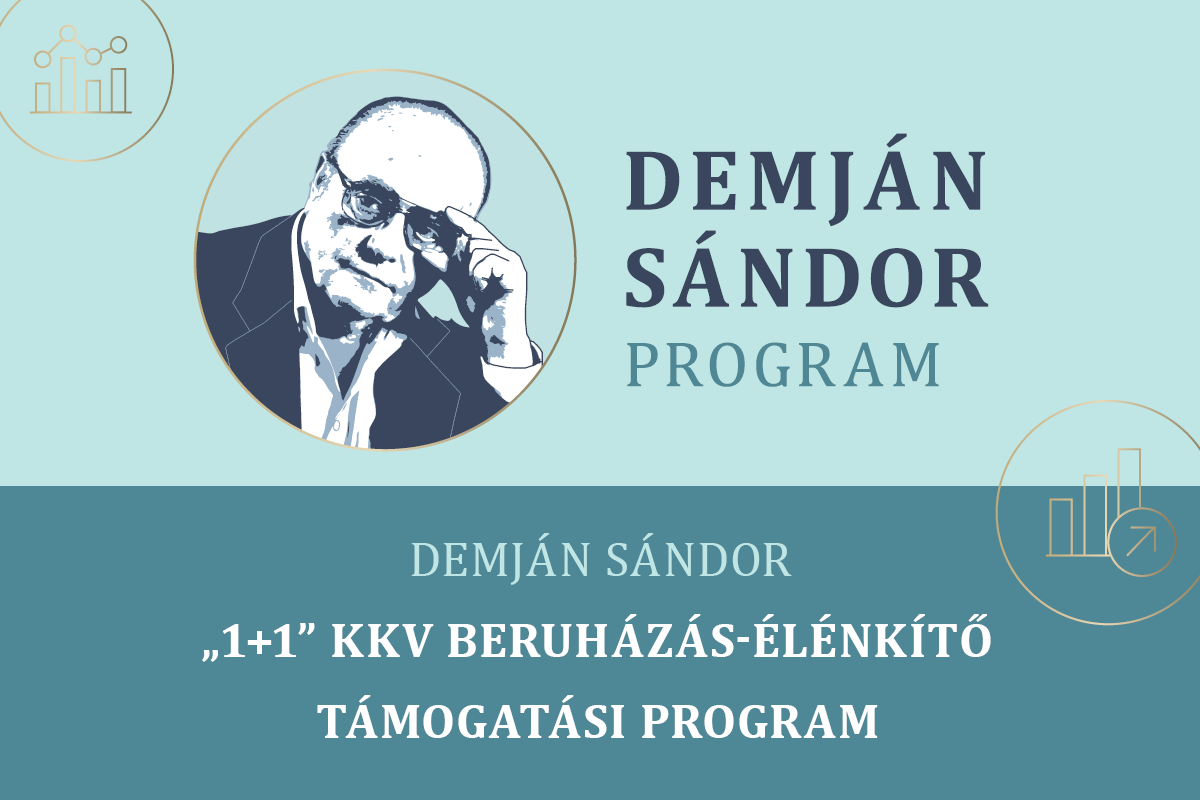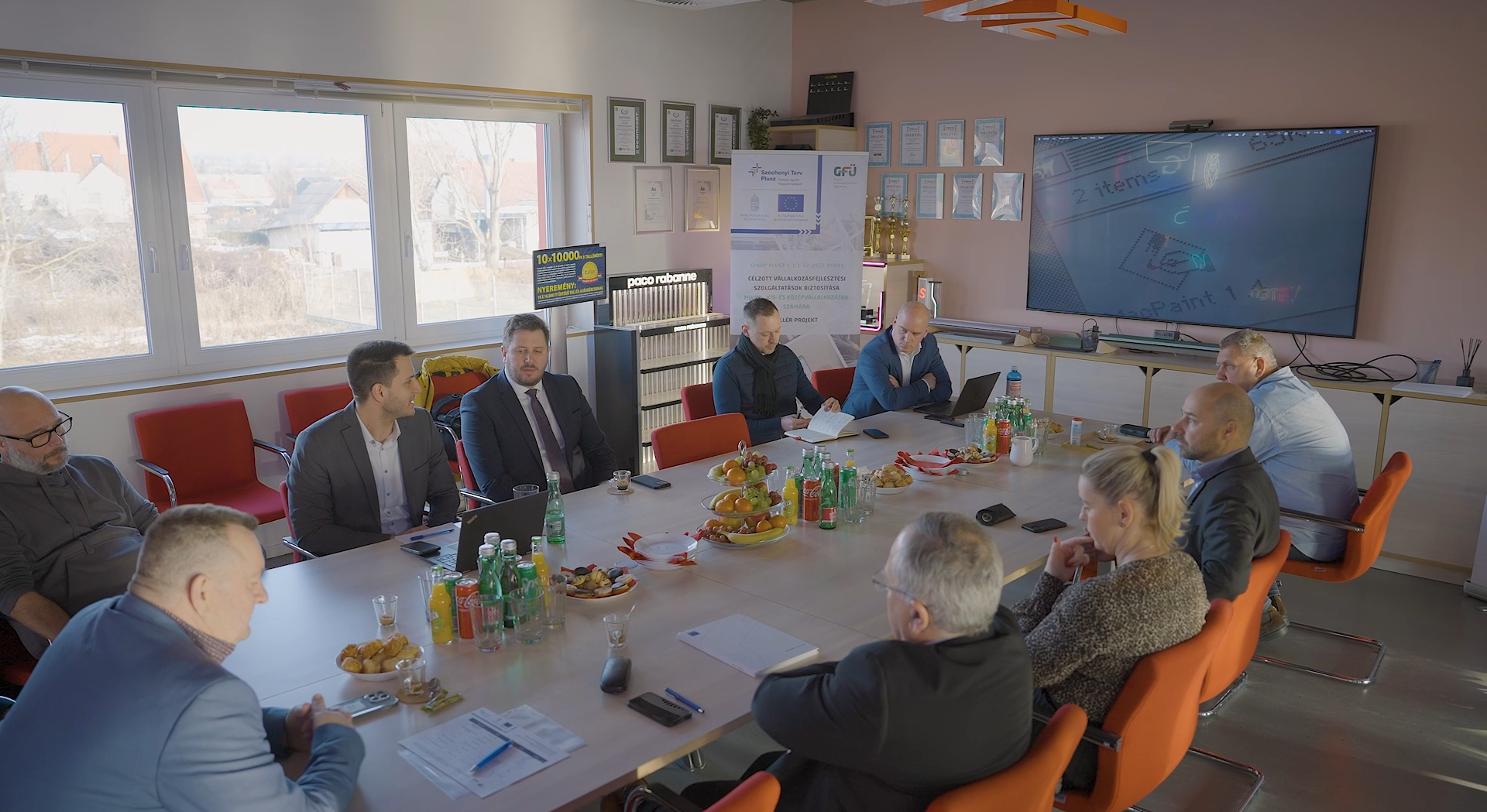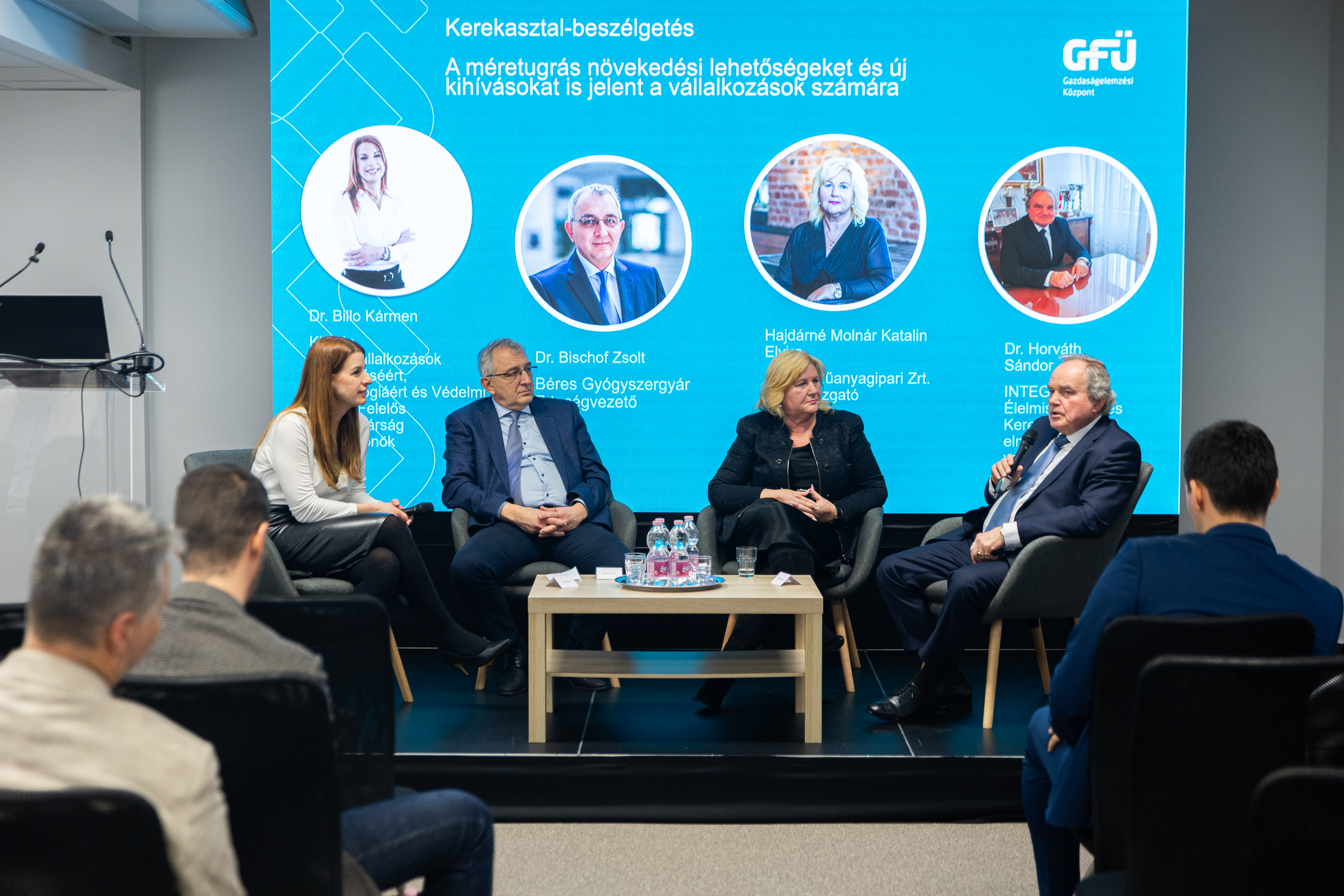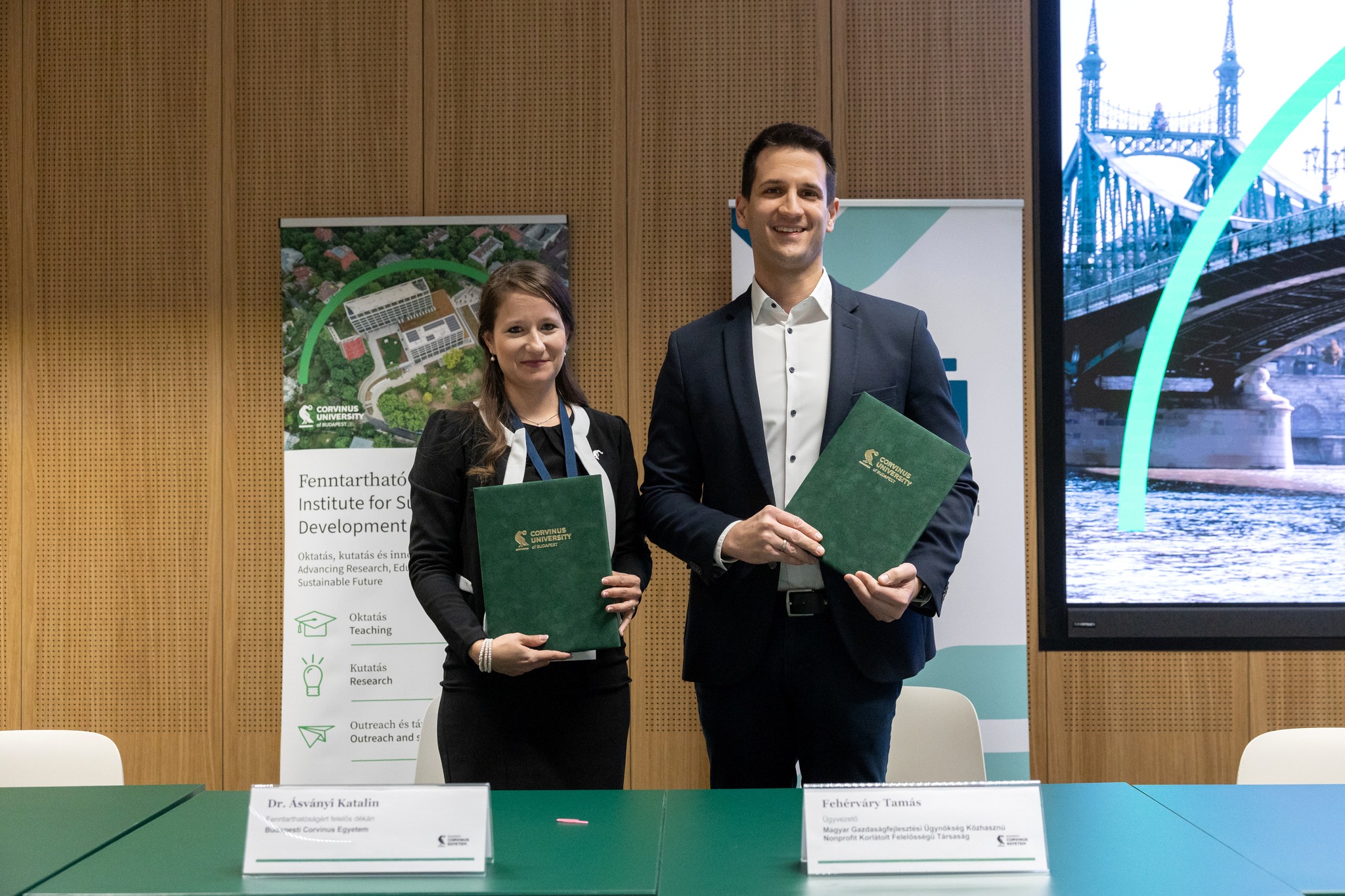
I. SERVICES PROVIDED BY MGFÜ
Service summary: There are disadvantage groups of Hungarian small and medium-sized enterprises (e.g. SMEs operating in disadvantaged regions or free enterprise zones) and the lack of support hinder their development opportunities and therefore their support is justified and their development is necessary. The activities carried out under the project will contribute to improving the overall operations of SMEs by increasing their revenue; the number of employees and the gross added value.
- Programme element called MODEM:
The mission of the programme is to provide an engine to boost the productivity and competitiveness of our domestic enterprises. The common goal of the programme is to present and process the numerous good practices of companies that are already operating in several locations across the country. They offer a variety of organizational and inter-organizational developments.
Model factory visits: more than 250 companies will host groups of company executives to share their experience of technology change and innovation. The half-day programme will consist of two parts: plant visits and an organizational development workshop to interpret what they have seen.
Nights of Modern Factories is hosted annually in the autumn. In this event company representatives, civil society and anyone who would like to get a glimpse into the life of a factory can join this event.
Regional events of Sample factory groups: It is utmost important that our domestic companies have access to good practices and opportunities for improvement from a wide range of credible sources. In response to this need, we have developed a series of events based on company success stories, or roadshows, to present the opportunities for participants to apply for funding
Company consultation: During a face-to-face consultation the manager can get an idea of where their company stands in a particular functional area (staff retention, technology change, process assessment, product development, business model, etc.), or a specific business development issue / dilemma, for instance the potential of a particular software or the challenges of introducing a new technology.
- Programme element called EVOLUTION:
Generational change (business handover and succession management)
Managing business succession requires long-term strategic and financial planning and a conscious entrepreneurial approach. The Generational Change programme aims to develop the market for legal and business services to support entrepreneurs; to train market players who actively support SMEs; to provide expert advice to prepare domestic businesses for the planned process of change they face. Our experts assess the problems and needs of entrepreneurs and help SMEs find the service that best suits their situation. With the programme, the change of leadership will create new opportunities in the life of businesses building on existing values.
“Second chance” advice (entrepreneurial re-start)
In this programme, we have set up a consultancy service to help businesses determine the value of their business, plan the transfer process and help the owner facing a generational change to make their business saleable and transferable. We can also help you to find the finance you need to complete the transfer.
In addition, to develop the management skills of businesses, our consortium partner has developed a free e-learning course called Entrepreneur Smartly. The Programme has produced a unique and benchmarked digital learning tool that addresses a range of relevant topics for businesses with a particular focus on the importance of human capital in digital transformation.
- Programme element called VOUCHER: Energy efficiency improvements: MGFÜ Energy Consultancy Voucher Programme
The Hungarian government’s key policy objective is to contribute to the foundation of strong Hungarian enterprises through the measures of the SME Strategy. Among the objectives of the Economic Development and Innovation Operational Programme Plus is to support the shift towards circular economy using more energy efficient equipment. However, Hungarian SMEs are facing greater challenges in adapting to green transition than their EU counterparts.
In order to achieve the aforementioned objectives, the Voucher Programme is introduced by the MGFÜ to increase energy efficiency and support energy audits of SMEs in order to achieve sustainable business operations.
The Voucher Programme will provide the opportunity for micro, small and medium-sized enterprises to benefit from the consultancy services of energy experts for which the Government will provide non-refundable /non-reimbursable support.
II. GRANT MANAGEMENT
Grant management involves guiding organizations through the process of applying for, securing, and managing grant funding. In this aspect MGFÜ plays a vital role in this activity since it acts as an intermediary between the government and Hungarian SMEs. Helping national initiatives is amongst the main focuses of MGFÜ because of our close linkage to the Department of Enterprise Development of the Ministry of National Economy.
Supplier development programme
The aim of the Supplier Development Programme is to support businesses to become providers through a new approach based on real market needs. The programme supports bridging the gap between the needs of integrator companies operating in Hungary and the domestic supplier capabilities.
The programme aims to involve domestic suppliers with a lower value-added product structure in the development and production of higher value-added products, increasing their efficiency and productivity through the use of modern Industry 4.0 technologies, organisational development, training, innovation and R&D.
Areas that could be eligible for funding are focus on capacity expansion: the purchase of machinery and tools of a higher quality than the existing ones, expanding the product range and the use of renewable energy technologies.
Automotive Supplier development programme
The Automotive Supplier Development Programme 2023 aims to strengthen and maintain a stable position of domestic companies in the automotive and battery industry and to increase the share of Hungarian suppliers.
The objective of the programme is to enable large companies operating in Hungary, as customers, to establish a joint development plan with their existing or potential suppliers on the basis of which supplier can participate in production with a higher added value product or a new one.
Domestic automotive companies will face a number of challenges in this decade and the rise of electromobility will require significant technological transformation. A sustainable technological transformation of the automotive industry from conventional to new types of vehicles requires the creation of a stronger domestic supplier base with high added value.
III. INTERNATIONAL CONSOTIUM PROJECTS
MGFÜ actively participates in EU founded projects collaborating with a range of organizations, research institutions and public bodies across Europe. Most of the projects focus on innovation, sustainability, circularity and technological advancements to address key global challenges. By sharing expertise and fostering international partnerships we contribute to implement impactful solutions in various sectors across the EU.
PROCAREFUL: By expanding existing health and social care services and shifting from a reactive to a proactive approach, the project aims to overcome the lack of access to homecare in both urban and rural areas.
CIREVALC: The project aims to introduce and disseminate circular economy models in regional value chains, mainly concentrated in the food, catering and packaging sectors. Moreover, the goal is to increase the use of circular economy models in the operation of SMEs by improving awareness, engagement and receptiveness.
CI-Hub: The project aims to improve the innovation potential of less innovative regions, regions with low innovation performance and weak innovation infrastructure, and largely non-urban industrial regions. The project aims to support circular transitions in the two most challenging circular supply chains - the plastics and metal processing sector and the construction sector.
TEX-DAN: The partnership focuses on the need to encourage knowledge sharing and attitudinal change, to promote know-how on innovative technologies, and to support measures and policy changes to make circularity sustainable in the textile industry. The aim is to boost transnational cooperation and knowledge exchange.
WE. Circular: The project aims to provide support and present good practices of women entrepreneurs, who apply the circular economy model approach in their daily organizational operations. Our project also provides training and add policy advice to SMEs planning to adapt the circular economy model.
Greene 4.0: Global supply chains are increasingly disrupted and the green transition demands more sustainable, smarter value chains. The GREENE 4.0 project supports manufacturing companies in piloting such new value chains. The project also helps to co-design new products and services through open innovation approaches.
INSPIRE: Smart development of rural areas is the key factor to enable rural communities to become more digitalized, become more attractive for locals, visitors and newcomers, countering the circle of depopulation and economic decline via the improvement of policy instruments towards a more integrated territorial planning.
TASK4ISI: Entrepreneurship in Central Europe is characterized by limited inclusiveness. Women, immigrants and young people are under-represented when it comes to starting a business. TASK4ISI will tap into the potential of these groups of entrepreneurs by creating "Entrepreneurship and Social Innovation Centers". Transnational cooperation is in the center of this issue, as it promotes local knowledge transfer and transnational.
CIRCSYST: CircSyst aims to bridge the gaps in knowledge, information, skills, and awareness by creating industrial symbiosis and fostering cross-sectoral and cross-border replication.
The project focuses on three of the priority value chains of the Circular Economy Plan: Water Management, Biowaste, and Plastics and Packaging, as well as in the potential synergies among them.







